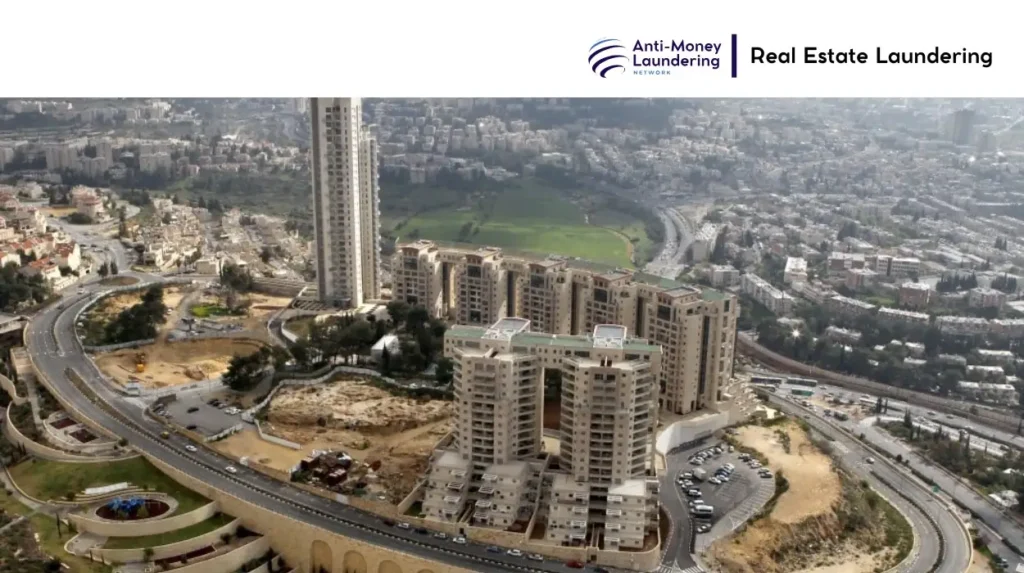The Holyland Park building complex in Jerusalem is a glaring example of systemic corruption, money laundering, and political complicity entrenched in the city’s opaque real estate sector. This luxury apartment project was enabled by a bribery-fueled rezoning scheme involving former Prime Minister Ehud Olmert and other top officials, exposing how political power manipulates property development for illicit financial gains. The scandal reveals Jerusalem’s chronic weaknesses in anti-money laundering enforcement and its real estate market’s ability to shield illicit assets behind shell companies, overvalued properties, and layered ownership—a landscape ripe for abuse and financial secrecy. This case underscores the urgent need for transparency and stringent regulation to combat entrenched corruption in Jerusalem’s property market.
The Holyland Park building complex in Jerusalem represents a prominent example of real estate being used as a vehicle for money laundering and asset concealment through corrupt rezoning and bribery practices. The project involved top political figures, including a former prime minister convicted of bribery tied to the rezoning process that made the luxury apartment project possible. The complex ownership structures, false land valuations, and political interference exemplify the severe financial opacity and weak AML enforcement endemic in Jerusalem’s real estate sector. This case underscores the nexus of political power and real estate-driven money laundering in a jurisdiction marked by systemic opacity and regulatory failure. It remains a critical cautionary tale for real estate and anti-corruption regulators globally.

